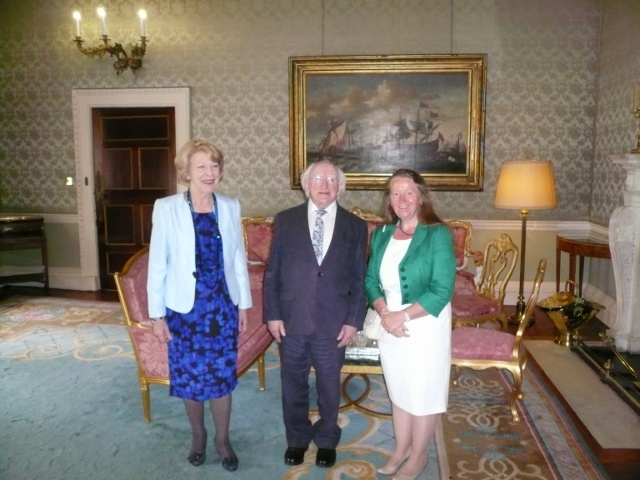President Michael D. Higgins launched a Nationwide Ethics Initiative on 14th February, 2014. The stated aim of the initiative was to develop a public discourse that places human flourishing and an ethic of active citizenship at its heart.
This principle is grounded in the discipline of Virtue Ethics which is about the development of character and considering what it means to live a good life. A virtue approach to ethics is rooted in the work of Aristotle, the ancient Greek philosopher. How we think and act over time contribute to the sort of character we cultivate.

You can watch a video of President Higgins speech on the day.
The President of Ireland’s Ethics Initiative National Seminar drew together all the outcomes from the various events around the country. This took place on Saturday 28th March, 2015 at Aras an Uachtarain. See the text of the President’s Keynote address at this National Seminar or download the final report.
Mary Stefanazzi’s doctoral research considers the Narrative of Human Flourishing in the tradition of Aristotle and Aquinas and the question of what it means to live a flourishing human life.
The aim of Virtue Ethics Ireland is to help and encourage people who are interested in ethics to reflect on what it means to live a good and flourishing human life. Mary Stefanazzi, an ethics professional (MA in Ethics) is available for individual consultations, facilitation of group discussion, designing and teaching courses on particular aspects of ethics, to providing lectures for a specific audience.
Human Flourishing is grounded in the Aristotelian ethical tradition. Back in March 2012 Mary presented a paper on an aspect of Aristotle’s work on practical wisdom at a conference on “Sins, Vices and Virtues” in Prague, Czech Republic. That paper relates to Aristotle’s thinking on practical wisdom and was subsequently published in 2014. See the publications page for further details.
Aristotle’s teaching on vices and virtues is not simple to live in daily life. When we attempt to live an ethical life by putting some of the principles of virtue ethics into practice, we are likely to find it more difficult than we imagined. That is where Mary’s professional expertise as a psychotherapist can offer support in navigating the difficulties as they arise.
The very mention of the word ‘ethics’ can sometimes evoke fantasies of excessive regulation, legal complications, and a dread that embracing ethics will mean having to follow lists of rules that we may not agree with. Thankfully the tradition of Virtue Ethics is not about following rules without question, but is rather about reasonably engaging with core principles that underpin human thought and action. In the main it is about the mature development of human character and what it means to live a good human life.
Taking the time and effort to examine your personal ethical stance with guidance from the Virtue Ethics tradition may contribute to your personal development in a way that can become a lifelong, nourishing and deeply enriching process. In this context it is worth remembering that it does not offer a quick fix solution to the difficulties of life. Aristotle’s words wisely remind us that, ‘One Swallow does not make a summer.’